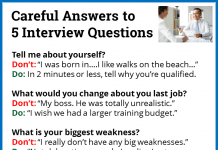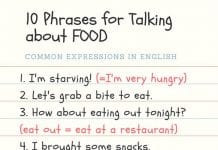Learning some proverbs is a great way to learn a language more thoroughly. Some proverbs mean something that is easy to understand if you have never heard it, but some are confusing if you have never learned them before.
Proverbs exist in every language, and often deal with similar topics. One of these common topics is knowledge, for only by learning can one truly be successful in any task.
The following are several proverbs related to knowledge and understanding that are used often by native speakers!
Skype English Lesson with a native AMERICAN or BRITISH teacher ››
1. A broken clock is right twice a day.
If you tell someone that something that you thought was impossible actually happened, they may respond to you by saying that, “A broken clock is right twice a day.”
This means that even the most useless thing or unsuccessful people can be useful or successful sometimes, just by chance.
This comes about because, even though a broken analog (not digital) clock is useless the vast majority of the time, when it gets to the time that the clock has stuck on, the clock is still correct.
It just so happens that they are able to still tell the time at two specific moments of the day. It is purely by luck, or the cycles of time, that the clock is able to tell the right time.
- A: I’m really surprised that Janice was able to get the best score in the class on this test! I always thought that her strengths were not academic.
- B: Well, even a broken clock is right twice a day.
- A: Wes’s favorite food to eat is actually broccoli! That is very unusual for a child.
- B: That is definitely surprising, but even a broken clock is right twice a day!
2. A little bit of knowledge is a dangerous thing.
If you say this proverb to someone, it means that you believe someone knows just enough to potentially be dangerous, but not enough that the danger they post is acceptable.
This often can be said of cases where acting with only incomplete information is likely to create chaos or danger.
For example, if a business executive sees that another company is advertising their products to children, and he wants his own company to do the same thing, he may be on the verge of doing a very dangerous thing.
If advertising to children requires special permission from the trade regulation committee of the government, but his company does not have this, he may get into big trouble by trying this new idea.
Similarly, if a doctor still in training saw an experienced doctor treat a patient one way, and tries to replicate it, he may do much more harm than good if it turns out to be a different situation.
This proverb is used to show other people that they do not have the full picture of something, and need to first see the forest – instead of individual trees (to understand the larger picture instead of being confined to the details) – before taking action or making a permanent decision.
- The worst part about being an acupuncturist is that some people take a weekend and get a “certificate” that allows them to put needles in people. In their case, however, a little bit of knowledge is a dangerous thing and they often do not have the skills to actually heal people.
- I can’t believe the medical intern tried to write a prescription! He definitely did not know enough to get the right medications and dosages. A little bit of knowledge is a dangerous thing.
3. A journey of a thousand miles begins with a single step!
This proverb means that anything that seems like a very long process – the journey of a thousand miles, for example – must be taken one step at a time.
While the whole project may seem daunting, and like it may take a lot of effort, it actually only takes one step at a time to get started. This proverb is often said to encourage someone to take action on something that they think is overwhelming.
- The point of the speech that the PhD graduates gave to their younger peers was that their journey of a thousand miles began with a single step, and to break down the large steps into smaller steps that they could take one at a time.
- Writing a novel is a long journey, but all journeys of a thousand miles begin with a single step.
4. Better the devil you know than the one you don’t!
This proverb is best used when you are choosing between two difficult options, especially ones that will be like “devils” (such as something extremely difficult or something likely that is likely to lead to failure).
If you know more about, are more familiar with, or have someone who can help you with it, you should choose that option instead of another that you are less familiar with.
Perhaps this is a sentence that can be used to help someone make a decision between something that is safer, and something that is riskier, and you want them to pick the option that is safer.
- Are you almost out of money? It looks like now that you have to choose between moving back home with your parents and having them ask you questions about your future all day, or declaring bankruptcy and starting over with your financial life. That it an extremely tough question, but I would maybe go with moving back home. Better the devil you know than the one you don’t!
- My boss gave me two options: stay late tonight to finish the presentation, or come into work very early in the morning tomorrow to do it. My family will not be happy with me if I choose to stay past dinner time at my office, so I will go in tomorrow instead. Better the devil you know than the one you don’t!
Skype English Lesson with a native AMERICAN or BRITISH teacher ››
5. Don’t judge a man until you have walked a mile in his shoes.
When people first learn about the habits of someone else, they often judge that person. They can think, “Why is that person so slow? Why do they worry so much? How come they are so lazy?”
However, it is very important to first understand someone’s situation and what they struggle with before passing judgment on them.
Instead of thinking these negative thoughts about someone, this proverb reminds people to consider what the other person may be going through.
For example, perhaps a student is slower than you because they have a learning disability. Or, they may seem lazy to you because they always finish all their work before or after you – you just do not see when they work hard.
Instead of assuming that you know everything about them when you see them, this proverb warns you to walk a mile in their shoes – to see things from their perspective – before you make a decision about them.
- I know you think your parents are very annoying when they do not let you travel alone to some countries, but don’t judge them until you have walked a mile in their shoes. They are trying to protect you!
- Your tennis coach is very strict about every aspect of your game, I know. He is trying to make you better, because the best of the best tennis players are all practicing this way! Cut him some slack – he is making you into a world class tennis player. Don’t judge a man until you have walked a mile in his shoes.
6. Don’t put the cart before the horse.
In the olden times, when people needed to use carts to move large amounts of things, they also needed horses to pull them. The horse would stand in front of the cart and pull from the front end, as long as you attached them correctly.
Preparing the horse before the cart was important. This proverb, warning you against putting the cart first, means that you must know what is the most important thing in a given situation.
You must identify this most crucial item, and tackle it first. Instead of putting the cart first, you must instead always put the horse first. In other words, prioritize!
- I know you are already dreaming of earning millions of dollars online, but you need to slow down. Don’t put the cart before the horse! Focus on earning you first dollar, then your first one hundred, one thousand, and on and on before thinking about numbers in the millions!
- Most people wake up and try to start their day by working on the easiest thing first, simply because it is easy. However, they often end up only working on those easy tasks, and never get around to finishing the other tasks which are actually most important! Don’t put the cart before the horse and do the same thing. Instead, put those difficult but crucial tasks first.
7. Don’t talk the talk if you can’t walk the walk!
This proverb is often used when scolding someone.
Some people believe that they can tell other people what to do without having done it themselves, thinking that they are the expert in some field when in fact they have less experience than the person they are trying to advise.
For example, you will see online that thousands of people will give you advice if you announce that you are trying to do anything, such as building a business, losing weight, or quitting your job to travel.
If someone who has never worked for themselves starts to give you advice about building a business, you can tell them politely to “not talk the talk if you can’t walk the walk”. In other words, do not give advice to someone about something if you cannot or have not done it yourself.
- Xavier was always walking around telling people how they could lose a few pounds, even though he was overweight himself. Finally, Candice was so frustrated with having to hear his bad advice that she told him, “Don’t talk the talk if you can’t walk the walk!”
- My friend Randy was annoyed at his father always telling him to exercise more, pick up after himself, finish him homework on time, and go to sleep early, even though he did not do it himself. In the end, Randy turned to him and yelled, “Don’t talk the talk if you can’t walk the walk!”
8. Early to bed and early to rise makes a man healthy, wealthy and wise.
This proverb originated as a saying by the American Founding Father, Benjamin Franklin, known for his contributions to each of the founding documents of the United States and as his work as an author and scientist.
In it, he advocates for the benefits of going to sleep early so that you can wake up early. If you do these things, you will be “healthy, wealthy, and wise”. In other words, you are much more likely to be successful and a leader than if you sleep in late.
- When I was a teenager, my mother would always wake me up at 6 in the morning. I hated it, but she always said, “Early to bed and early to rise makes a man healthy, wealthy, and wise!” and pushed me forward. Luckily, I now enjoy waking up so early because most other people are still sleeping, and I can work without being disturbed.
- If I have to work for 12 hours a day, I would much rather start work at five or six in the morning than start at nine or ten. This way, I can get a good amount of work done before other people start to bother me and need me, and I can work more efficiently. As they always say, “Early to bed and early to rise makes a man healthy, wealthy, and wise!”
Skype English Lesson with a native AMERICAN or BRITISH teacher ››
9. Give a man a fish, he eats for a day. Teach a man to fish, he eats for a lifetime.
This proverb actually exists in many different languages, though it might be in a slightly different form. Either way, the meaning of this proverb is that, if you really want to help someone, you should not just do it by completing the things for them.
This creates a feeling of dependence, and it very easy for the other person to never think about what they need to do in order to be successful themselves. Instead, the best way to help someone is to teach them how to do something.
If you teach a man how to fish, he will be able to use that skill over and over again to feed himself, whether or not you are standing there by his side to help him. This is a great proverb if you are reminding parents about helping their children learn.
Even though every parent wants their child to be the best, you must allow them to struggle and learn how to overcome the types of challenges that they face, so that one day they can meet these challenges without having to have someone guide them through it.
- Many of the best nonprofit organizations that build schools, provide health care, teach locals, and other things operate with the mindset that the people they are providing resources to will one day be able to sustain their ways of living by themselves. Give a man a fish, he eats for a day. Teach a man to fish, he eats for a lifetime, so education and learning how to do something is far more important than giving people a bunch of resources that they will no longer have once you leave.
- It took Little George’s parents a long time to realize this, but their coddling their son was not helping him at all. He ended up not knowing how to dress himself even though he was already starting school, and he still drank infant formula because he liked it. However, give a man a fish, he eats for a day. Teach a man to fish, he eats for a lifetime. Once he started school, they stopped helping him so directly.
10. Great minds think alike.
If you tell someone that great minds think alike, you are most likely referring to the fact that you and they thought of the same thing at the same time.
If you are brainstorming for something, and it just so happens that both of you come up with the same idea for something, one of you can exclaim, “Great minds think alike!” to signify that you were just thinking the same thing.
Whether or not either of you is actually a “great mind” does not matter that much. As long as you are able to say that you two were thinking along the same lines, you can lightheartedly say that great minds think alike.
- You think putting everything in a massive to do list sounds like a great idea, too? It looks like great minds think alike!
- Our project manager asked us to write down all the potential problems that this idea could have that we could think of, and it turns out that three of my ideas were the same as yours! Great minds must think alike!
11. Hindsight is 20/20 (pronounced: twenty twenty)
When you are looking back at something that has happened in the past, you are using hindsight to think of that thing.
Especially when you are looking at your mistakes, you may keep analyzing what went wrong and obsessively planning for how to improve in the future.
While this is great, it can be harmful to you if you think too much about the past and blame yourself for not think of things that you missed – a clue, for example. In this case, someone can say, “Hindsight is 20/20!”
In the system that the United States uses for eyesight check ups, 20/20 means perfect vision, or the threshold for perfect vision.
Therefore, someone who says this proverb to you means that what happened in the past is always clear when you are looking back on it.
However, it is not always easy to see all the same signs of failure when you are in the moment. As a result, you should not feel that bad about missing the signs of potential failure in the past.
- When historians look back on the causes for events such as world wars, civil wars, and even terrorist attacks, they identify things that could have pointed to the possibility of these things. However, in the moment, political advisors could not anticipate that these factors would lead to war. Hindsight is 20/20, so all we can do is keep our eyes open for similar circumstances in the future that might lead to a similar result.
- Looking back, you definitely should have prepared more before quitting your job to go travel. However, hindsight is 20/20! If something like this ever comes up again, make sure to do more preparation to prevent bumpy roads.
12. Knowledge is power
The last proverb, knowledge is power, is used to describe the fact that, the more you know, the better off you will be.
Especially when you are working with someone who is uncooperative, the more you know about how to persuade other people, to gain an edge on them, and to convince them to work with you.
Furthermore, if you can learn from other peoples’ mistakes, you are much more likely to make fewer mistakes yourself, and therefore succeed. This proverb, knowledge is power, is a great way to remind students why they are studying.
- Whenever I get tired to studying or reading books, I remind myself that knowledge is power, and start to get motivated to work harder again.
- Right below the name of our school on above the front entrance, the proverb, “Knowledge is power” is written so that all the students remember that they need to keep studying and understanding more about the world in order to succeed.
Skype English Lesson with a native AMERICAN or BRITISH teacher ››
























Wow it’s literally blow my mind and i love it
Thank you for your contribution and hard work. Thank you very much.